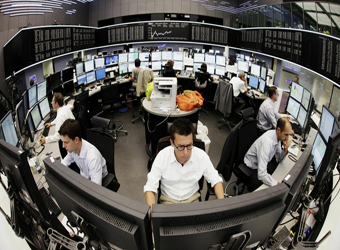European markets closed slightly higher on Friday after hitting record highs during the previous session.
The pan-European Stoxx 600 ended 0.16 percent higher with most sectors and major bourses in positive territory.
Telecoms led the gains as both BT and Telecom Italia moved higher.
Utilities ended slightly higher too. Enel, the Italian utility firm, said Friday that large-size mergers could have a destructive economic impact. Its full-year results were in line with expectations.
The U.K.’s house builder Berkeley Group was at the top of the benchmark. It jumped 6.1 percent after indicating that its profits will hit the top end of analysts expectations, despite a slowing housing market in the capital.
By contrast, the multinational oil firm Tullow Oil was at the bottom of the European benchmark, down by 14.7 percent.
This was after news that it is launching £607 million ($749 million) rights issue at a 45 percent discount to its current share price as it tries to reduce its debt burden.
The Nordic lender Nordea fell over 6.3 percent on Friday. This comes after a dispute with the Swedish government.
Nordea’s chairman said Thursday that he will likely propose moving the Swedish headquarters if the government raises fees for the country’s banking rescue fund.
Elsewhere, former chief executive of Barclays Bob Diamond and the Qatari royal family said Friday they are buying the British stockbroker Panmure Gordon.
Meanwhile, the Dow Jones industrial average and broader S&P 500 continued to hover around the flatline as gains made in the technology sector were offset by losses in healthcare.
Investors are set to be mainly focused on politics with finance ministers and central bank governors of the G-20 gathering in Germany.
Meanwhile, German Chancellor Angela Merkel is due to meet U.S. President Donald Trump in Washington DC. This will be their first meeting after accusations from the U.S. administration that Germany manipulates the euro to take advantage when trading with its foreign partners.
Wolfgang Schaeuble, the German finance minister, told the press following a meeting with U.S. Treasury Secretary Steven Mnuchin that Germany’s surplus was due to the fact that it doesn’t have its own currency and is not in charge of its monetary policy.
In terms of data, the euro zone registered a trade deficit in January- the first time in three years, data showed Friday.
Source: CNBC
